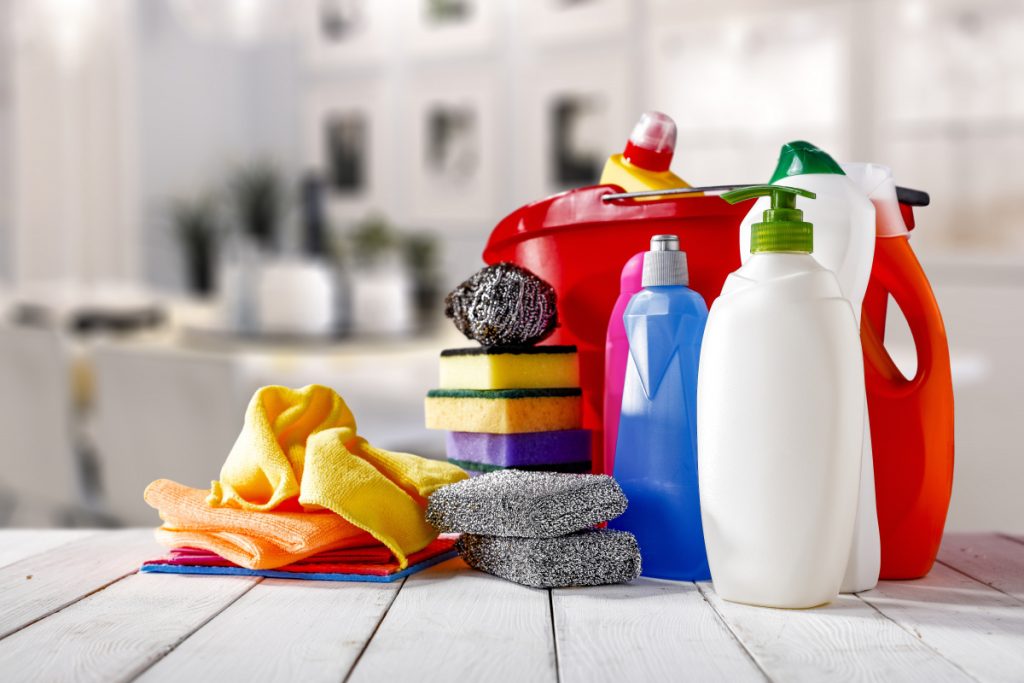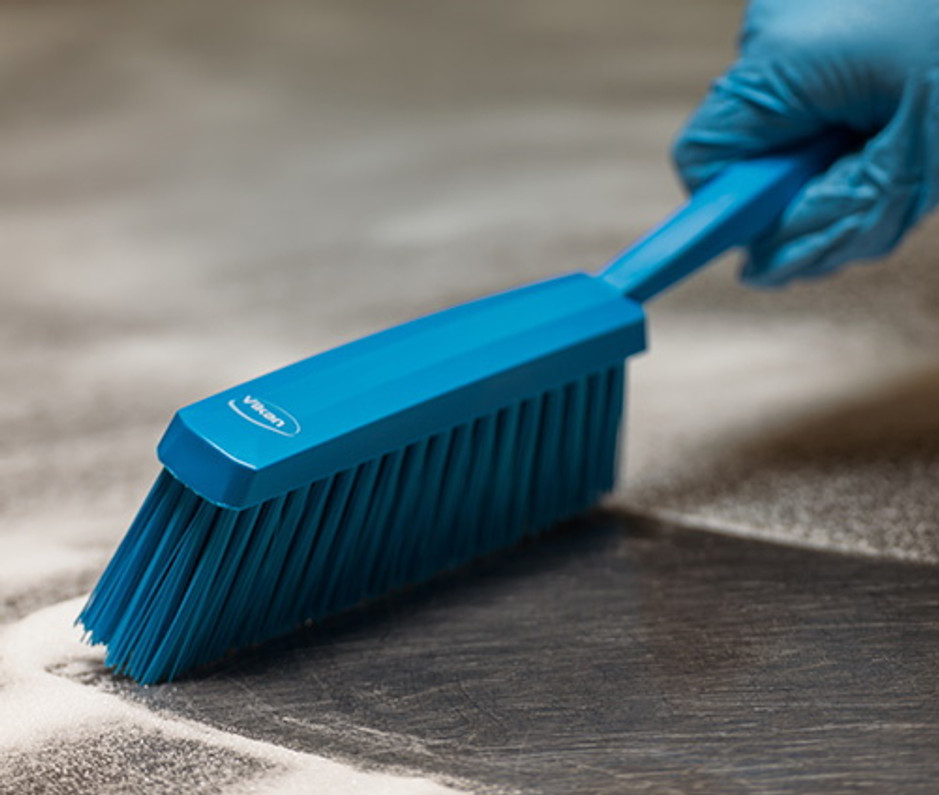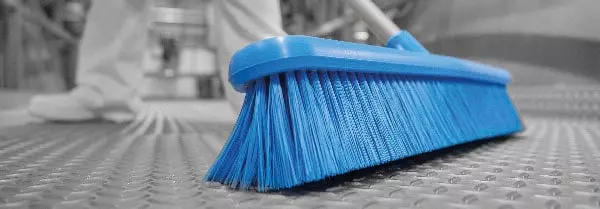
Choosing The Right Cleaning Supplies For Your Business – A Buyer’s Guide
Maintaining clean business premises is not just about appearance—it enhances employee well-being, creates a professional environment that delights customers, and...

Get 20€ off on your first order!
Choosing the right brush is key to effective and safe cleaning. In this guide, we’ll show you exactly when to use soft bristles for delicate surfaces and stiff bristles for tougher jobs. With our expert tips, you’ll achieve the best results while protecting your surfaces.
Plus, once you’ve mastered brush selection, we’ll help you with the next step—pairing them with the right cleaning products. Let’s make every cleaning task simple and efficient!
For a broader overview of cleaning tools, check out our main article, Brushes & Sponges: Everything You Need To Know.
Soft-bristled brushes are designed for delicate surfaces and light cleaning tasks, such as car paint, fragile ceramics, or other easily scratched materials. They are typically made of materials like nylon, horsehair, or other fine synthetic fibers.
Example Use Case: Cleaning a glass coffee table with a soft-bristle brush ensures streak-free results and avoids any micro-scratches that could occur with tougher materials.
For more tips on selecting the right cleaning tools, explore our Brushes & Sponges product category.
Stiff-bristled brushes are the champions of heavy-duty cleaning, often used in industries such as construction, manufacturing, and outdoor maintenance. They are often made from materials like polypropylene, wire, or coarse natural fibers.
Example Use Case: A stiff-bristle brush effectively restores patio stones by removing moss or dirt buildup, leaving them clean and fresh-looking.
To ensure you’re fully equipped, check out related cleaning products like Surface Cleaners for enhanced results.
Here’s a quick comparison to guide your choice. Additionally, consider ease of cleaning and maintenance when making your decision, as stiff bristles may require more rigorous cleaning to remove debris.
Here’s a quick comparison to guide your choice:
| Feature | Soft Bristles | Stiff Bristles |
| Material | Nylon, horsehair, synthetic fibers | Polypropylene, wire, coarse natural fibers |
| Best For | Delicate surfaces, dusting, polishing | Heavy-duty cleaning, scrubbing, stain removal |
| Durability | Moderate (for lighter tasks) | High (resistant to wear and tear) |
| Use Cases | Glass, furniture, electronics | Concrete, tile grout, outdoor equipment |

When deciding between soft and stiff bristles, consider these factors:
To keep your brushes in top condition and suitable for repeated use, consider the following tips:
To ensure your brushes last longer:
In addition to brushes, you may need complementary cleaning supplies to complete your tasks effectively. Explore these categories:
For further insights on related tools, read How To Choose The Right Dust Pans And Brooms – A Buyer’s Guide.
We hope this guide has made it easier to understand the key factors in choosing the perfect brush for your cleaning tasks, from bristle type to surface compatibility. Whether you’re gently polishing delicate surfaces or tackling tough stains, the right brush can make all the difference.
For a comprehensive guide to cleaning tools, visit our Brushes & Sponges product category. If you found this article helpful, be sure to check out Brushes & Sponges: Everything You Need To Know for even more tips and insights.
Have questions or need guidance in finding the best cleaning tools? Our team is always here to help, ensuring you feel confident and well-equipped for every cleaning challenge.
— The Droppe Team
It’s best to avoid stiff bristles on delicate surfaces, as they can still cause scratches even with light pressure. Use soft bristles instead.
Rinse them under warm water, remove debris, and let them air dry completely to prevent odor or mildew.
With proper care, most brushes last several months. Replace them when bristles become bent or worn out for optimal cleaning.
Yes, many brands offer brushes made with natural fibers and biodegradable materials for sustainable cleaning.
It’s best to use separate brushes—soft bristles for indoor cleaning and stiff bristles for outdoor or heavy-duty tasks to maintain efficiency and hygiene.
Thank you! You've signed up for our newsletter.



















Maintaining clean business premises is not just about appearance—it enhances employee well-being, creates a professional environment that delights customers, and...

Not sure which cleaner is best for your floors? This article will provide you with all the information you need...

Choosing between solvent-based and water-based industrial cleansers can be tricky, but we’re here to make it easier. In this article,...

Maintaining clean business premises is not just about appearance—it enhances employee well-being, creates a professional environment that delights customers, and...

Not sure which cleaner is best for your floors? This article will provide you with all the information you need...

Choosing between solvent-based and water-based industrial cleansers can be tricky, but we’re here to make it easier. In this article,...
Get 10€ off on your first order!
Save 30% by buying directly from brands, and get an extra 10€ off orders over €100
Save 30% by buying directly form brands, and get an extra 10€ off orders over €100